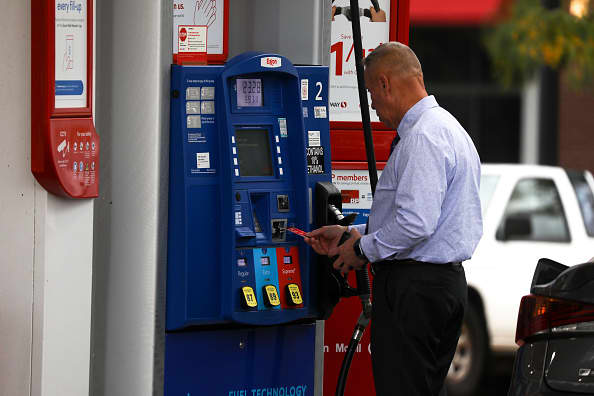At supermarkets across the tristate, sticker shock is becoming all-too-common lately.
As problems with the supply chain continue, shoppers will likely continue to see higher bills at grocery store checkouts for the near future.
Certain foods have already seen a significant price increase compared to last year. Chicken breast now costs nearly 25% more, and bacon is up nearly 38%.
Get Tri-state area news and weather forecasts to your inbox. Sign up for NBC New York newsletters.
In addition to supply-chain problems, weather woes and inflation are putting the squeeze on shoppers. So how high will the prices go?
Industry insiders like John Catsimatidis – who owns more than 30 Gristedes and D’agostino markets – are sounding the alarm that your grocery bill could jump dramatically. He believes that prices will likely continue to go up "at least into the summer or fall of 2022."
"We predicted that over the next 60 days it’ll be up ten percent," Catsimatidis told NBC New York. That's the high end of the predictions.
The government estimates a jump up to 3.5% by the end of the year, with products like beef over 7%. Most big chains declined our requests for an interview, but their trade group said this is the reality about price hikes.
"Everybody is feeling them differently, everybody is addressing them differently," said Doug Baker, the vice president of industry relations at FMI, the Food Industry Association.
Stew Leonards is one example. Their suppliers are getting hit from all sides.
"These are family farms. And they call me up, and they say 'Hey, the cost of fuel is going up for my tractor. The cost of feed has jumped up on me. My labor costs have gone up.' And they wanna raise their price," said company CEO Stew Leondard Jr.
He believes his stores could be hit with a 10% jump – but shoppers will only see half that, because he’ll split the difference with suppliers.
"Retailers and manufacturers do everything they can to absorb as much of those cost increases that they’re experiencing," Leonard Jr. said.
Despite the higher prices, there are always ways to ease the pain and save some money. First off: Don’t just buy your favorite label.
"I think if you buy the store brands … like if you want to get American cheese, it’s better if you buy the store’s American cheese versus one of the really popular American cheese," Leonard Jr. said. "You can save 30-40 percent by doing that. And it’s probably made in the same plant in Wisconsin."
Also, pay more attention to price cuts.
"Look at the sale items weekly and adjust your shopping pattern based on that because there’s still gonna be good values out there," said Joseph Parisi, the chief operating officer of Red Apple Group.
And don’t forget: Many stores put deals in the palm of your hand.
"Download the loyalty apps so you can get (deals) digitally, and you can filter through them to find out where those best deals are," said Baker.
Finally, insiders suggest buying now, to enjoy later.
"Buy in quantity if you can. Like you see these bagels right here. You can get one of them for 79 cents. And you can get a dozen of them for $7.99, so you’re saving money," said Leonard Jr. "The pandemic taught us we can freeze things. There’s a lot more freezers out there. So look for those sale items, buy it, freeze it."
Worst case – rethink your menu, says Catsimatidis.
"Change your style of eating. In the old days of eating, my mother would buy a lot of chicken, and less steak," he said.
Upper West Side shopper Juliette Hall has another idea. When asked if she thinks she will start shopping for more items on sale, she said "No, I might just buy less."



